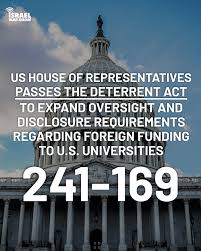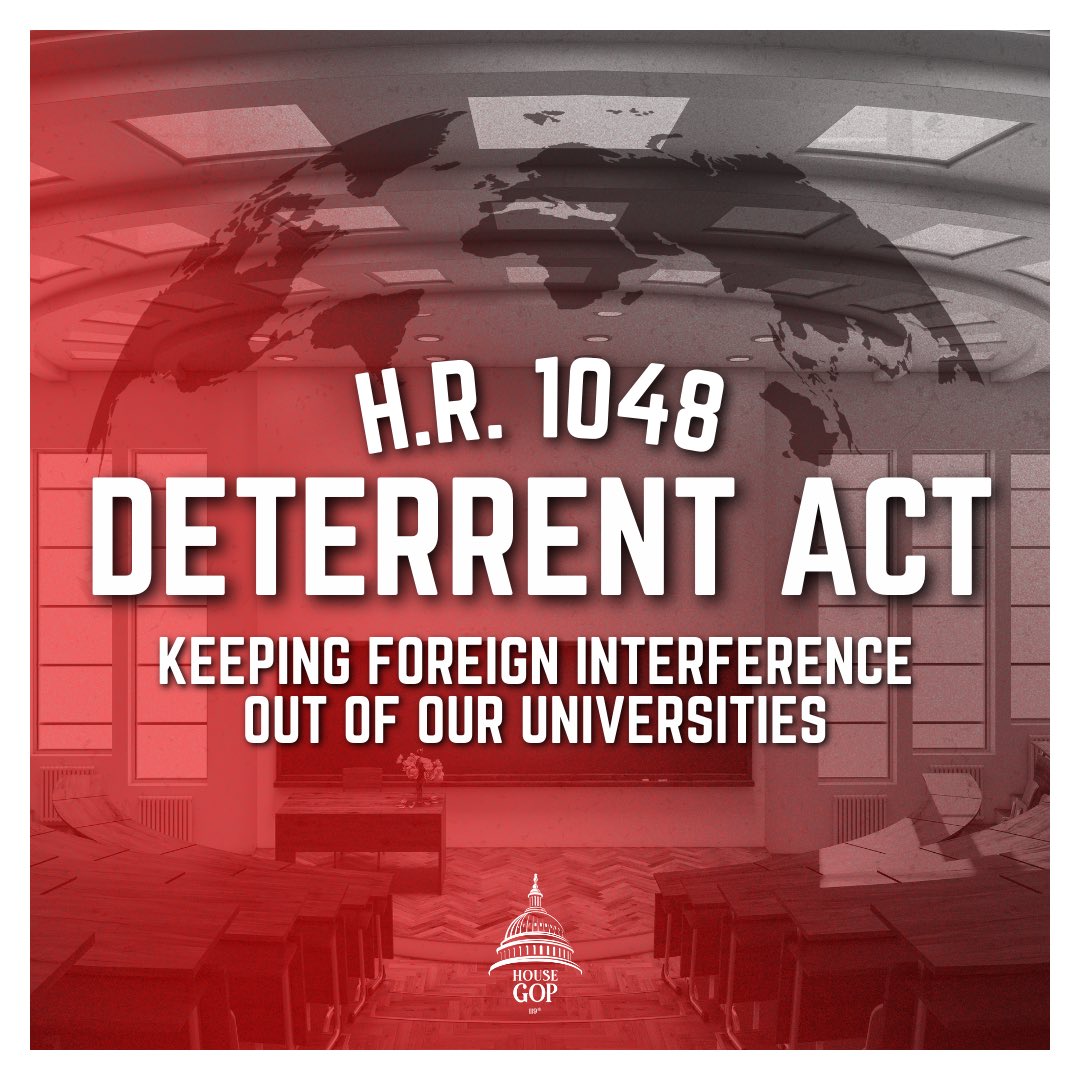The U.S. House of Representatives today passed the DETERRENT Act, a sweeping piece of legislation aimed at expanding oversight and transparency of foreign funding to American colleges and universities. The bill, which now heads to the Senate for consideration, seeks to close longstanding loopholes that have allowed adversarial regimes to funnel billions into U.S. institutions with minimal accountability.
For years, lawmakers and national security experts have raised alarm over the extent to which foreign governments — including those considered strategic threats to the United States — have used donations, contracts, and partnerships to gain influence over higher education institutions. The DETERRENT Act is being hailed by supporters as a long-overdue response.

Key provisions of the bill include:
- Reduced Foreign Funding Thresholds: The Act lowers the maximum allowable contributions from foreign entities, tightening the financial leash on universities receiving funds from abroad.
- Contract Restrictions: Universities will now be prohibited from entering into contracts or agreements with “countries of concern” without first obtaining a waiver from the U.S. government.
- Annual Disclosure Reports: Institutions of higher education must file detailed annual reports disclosing the source, amount, and purpose of foreign gifts and contracts.
- Enforcement and Penalties: Colleges and universities that fail to comply with the disclosure requirements or violate the new contract restrictions will face serious penalties, including the potential loss of federal funding.
Supporters of the legislation argue it is a critical step toward defending American sovereignty, student safety, and academic independence.
Critics of the bill have voiced concerns over the potential bureaucratic burden it places on universities, but bipartisan support in the House reflects growing concern over foreign interference in education.
The Senate is expected to take up the bill in the coming weeks.

